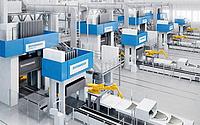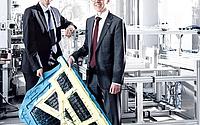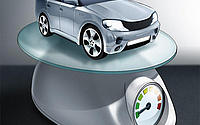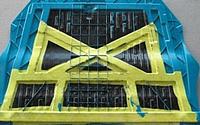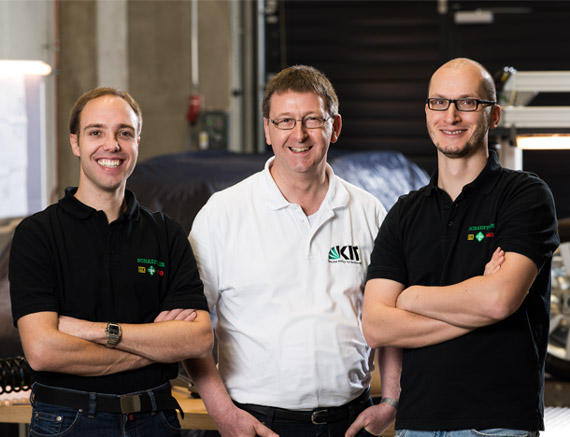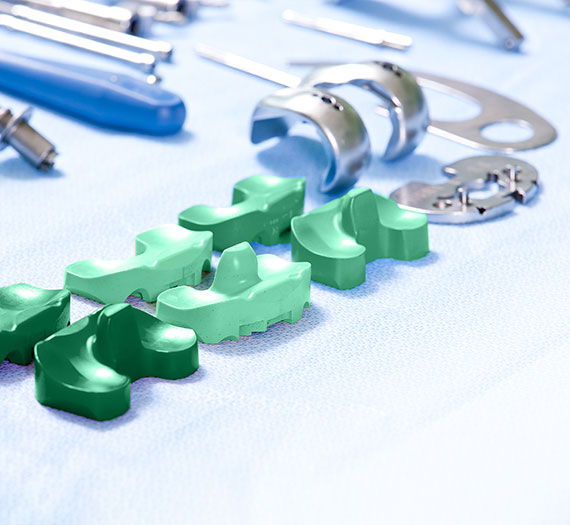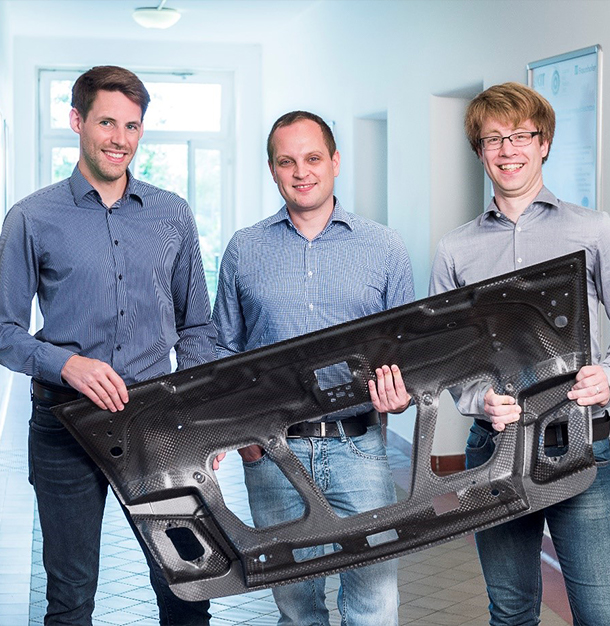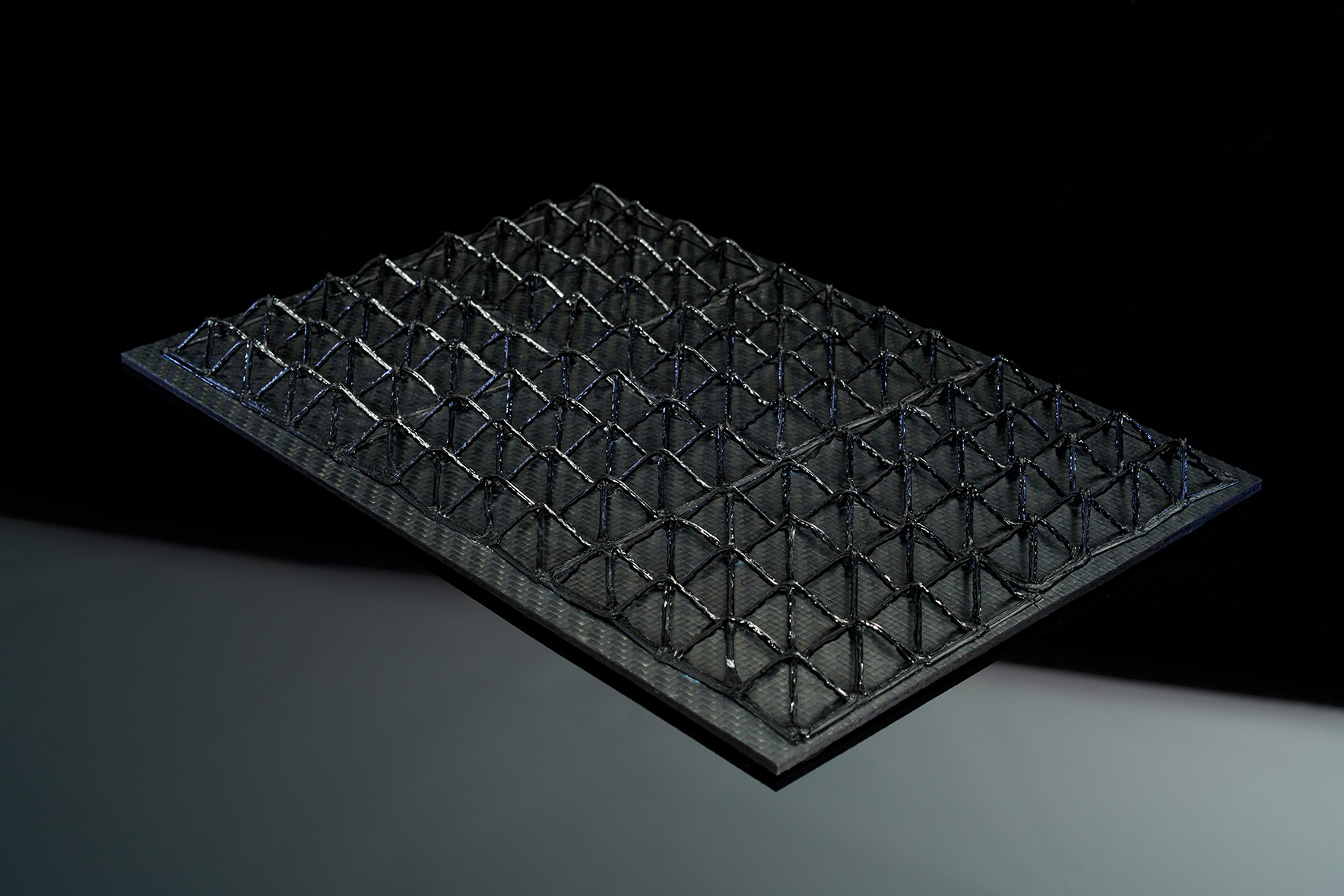- Energy
- Climate, Environment & Health
- Materials
- Mobility
- Production
ON THE GOLD SCALE
The fact that the population in Western countries is getting fatter on average is a well-known problem. What has received less attention is the impressive increase in the weight of motor vehicles over the past 30 years. Some mid-range cars nowadays weigh almost 600 kilograms more than predecessors decades ago. This is a trend that, with gasoline prices at historically high levels in 2012, is having an impact on the wallet. In addition, it is not only that: Heavier cars pollute the environment more. KIT scientists Frank Henning, Juergen Fleischer and Kay Weidenmann want to slim down cars and airplanes with hybrid lightweight technologies.
Modern equipment elements that increase safety and comfort in the vehicle are mainly to blame for the weight increase. From air conditioning to side impact protection, parts now being installed either did not exist or were not as advanced in earlier generations of cars. Greater safety equals more weight - a problem that developers recognized early on. The first efforts to compensate for the increasing weight by using lighter materials existed already in the 1980s. Today, no car has a body made purely of conventional steel. Aluminum and composites are replacing some of the heavy material. However, composites in particular, which combine several materials, are not only expensive, but also pose a major challenge for carmakers, designers and suppliers.
"Materials used in cars or airplanes have to meet many different requirements, such as being lightweight, high-performance and operationally stable," says Professor Frank Henning, Head of Lightweight Design Technology Chair at KIT Institute of Vehicle Systems Engineering. The lightweight design specialist knows how much work is behind every kilogram that new cars are supposed to weigh less. "It is not just a matter of realizing a material mix that fits the requirement profile of an engine hood, for example. For each new material and each new component, a suitable construction method, appropriate tools, large-scale manufacturing processes and equipment have to be developed that make economical series production possible in the first place," says the engineer. The overall lightweight manufacturing system requires input from a wide range of engineering disciplines. Frank Henning has therefore joined forces with partners from other KIT scientific institutes and three Fraunhofer institutes in the KITe hyLITE innovation cluster.
The inter-institute and interdisciplinary network develops new hybrid components and the necessary methods, materials, and production steps in close cooperation with industry. Henning and his team at KIT mainly focus on process modeling and simulations of the materials and components as well as develop and set up the manufacturing technologies at Fraunhofer ICT. Kay Weidenmann from the Institute for Applied Materials - Department of Materials Science investigates the "prehistory" of a material: "We provide fundamental knowledge about the process-related influences on the microstructure and the relevant service properties of fiber composites under component-related loading scenarios." Professor Juergen Fleischer and his Institute of Production Technology at KIT are responsible for ensuring that the complex production steps can be implemented and interlinked at all. The production lines on which components made of polymers and carbon fibers are manufactured place high demands on automation, so that robot technology or workpiece grippers often have to be specially designed.
Together with the industry-oriented Fraunhofer Institute for Chemical Technology (ICT), KIT scientists are advancing technologies that make hybrid components not only more efficient but also less expensive. "Composite components with carbon fibers are expensive and the manufacturing processes are complex. That is why it is important to develop new materials and efficient production processes. We want to make it possible to produce components with minimal weight at low cost with less waste," says Matthias Graf from Dieffenbacher, a mechanical engineering company. The Eppingen-based company builds component production systems for the automotive and supplier industries. Dieffenbacher, ICT and KIT came a step closer to the goal of enabling lighter vehicles in a joint project in 2012.
A new line enables automated production of car body structural components from long-fiber-reinforced thermoplastics with local continuous-fiber reinforcements, which not only meet the high demands of automotive manufacturers in terms of mechanical properties but also reduce costs thanks to a lean production process. The components are custom-designed and engineered in advance. Depending on the location of use in the vehicle and the potential loads, it is determined how the parts are shaped and in which area which material is sensibly used. Long fiber tapes are the basis for the components. They are stacked together in several layers at points subject to high loads, placed in a mold and flowed around with a long-fiber-reinforced molding compound.
In 2013, the first lines of the new series will be delivered to the automotive industry. Frank Henning sees himself and his research partners in the middle of development in the right direction: "Vehicles will never be built entirely from plastic. But with our inventions and the right integration technology, the new materials together with steel and aluminum can enable innovative lightweight solutions that will make our cars more environmentally friendly, more economical and still affordable in the future."
"I see innovation as turning my inventions into an economic advantage. It's important to me that my technologies are put to good use."
Images: KIT
